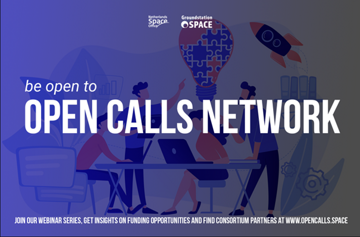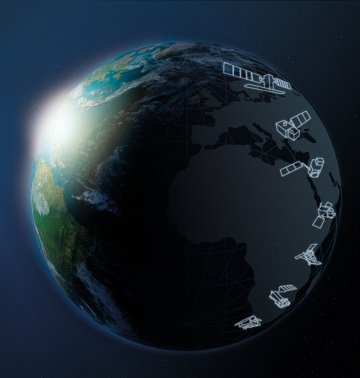European grants offer opportunities for innovation in Dutch space sector
How can space help make cities climate-neutral and smarter? That was the central question at the first of a series of webinars organized by Groundstation.space, commissioned by NSO. The aim of the webinars is to bring companies and knowledge institutions together. Because together they can apply for European funding for research and innovation, such as Horizon Europe.
 It is a difficult world to fathom, the world of European grants for research and innovation. International cooperation is often required, as is the writing of comprehensive proposals. But it all starts with finding the right call, the request from a funding entity to solve a specific problem. In this case, using space.
It is a difficult world to fathom, the world of European grants for research and innovation. International cooperation is often required, as is the writing of comprehensive proposals. But it all starts with finding the right call, the request from a funding entity to solve a specific problem. In this case, using space.
Enter Groundspace.space. This foundation is on top of things when Europe (or ESA) makes money available to develop innovative technologies or applications in space. Scholarships, grants, funds and other financial instruments are conveniently collected in the Open Calls Network. This is a good starting point for anyone with international ambitions.
Stronger together
But how do you find international partners with whom you can write a proposal for one of these calls? For that purpose Groundstation.space developed a seven-part webinar series, the first of which was held last Tuesday. Tuesday, June 28, is the second, on digitization and industry. This will be followed by webinars on security, climate adaptation and our food supply, among others.
During the webinar on sustainable cities, CGI talked about their Environmentmonitor360 and how satellites can help in the transformation to more sustainable cities. Sobolt showed how Earth observation satellites are helping to add solar panels to more roofs, build smart carports and develop digital tree management. And several startups made pitches about heat islands, carbon cycle research and forest restorations in Uganda.

Th space segment of the European Copernicus system consists of the Sentinel satellites. (image: ESA)
From reactive to proactive
'It is becoming increasingly important for companies, institutions and governments to know how to find each other,' says Raymond Sluiter, who represented NSO during the webinar. 'In the past, people mainly looked to ESA programs for funding. Now the European Union is at least as important as a player with programs like Copernicus, Galileo and Horizon Europe. So we have to look further. Not be reactive, but proactive.'
According to Sluiter, the Dutch space sector is still missing out on opportunities in Europe: 'Just think: in Horizon Europe alone, 95.5 billion euros are available for research and innovation over the period 2021-27. To be able to apply, you have to bring together the right consortia that submit high-quality proposals. And we as a government must sufficiently facilitate this with our policies. This webinar series is an important tool in that.'
Webinar series
In the coming months Groundstation.space will organize six more webinars. The focus is on the Horizon Europe program, a research and innovation program for universities, companies and knowledge institutions that runs until 2027. More information and registration can be done via the website of Groundstation.space.